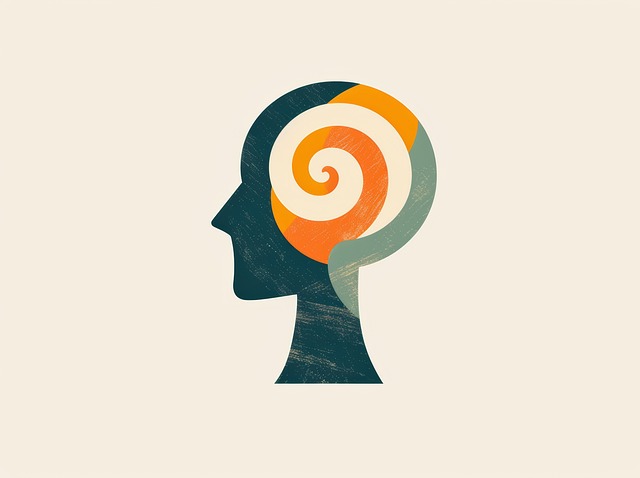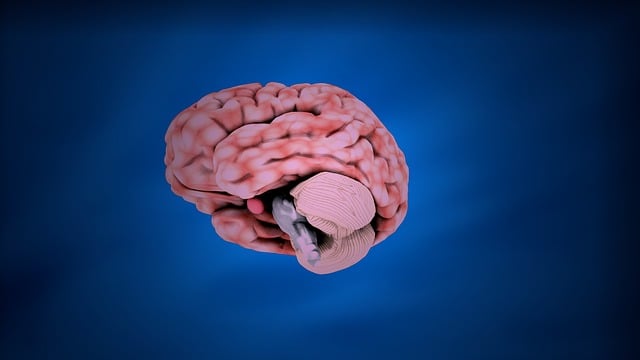In today's diverse healthcare environment, cultural competency is key to high-quality patient care, especially in specialized areas like Castle Rock Sexual Addiction Therapy (CRSAT). CRSAT integrates stress management and mindfulness techniques into their programs, fostering trust, open communication, and improved mental wellness for clients from various backgrounds. Effective training strategies using interactive workshops, role-playing, and mindfulness exercises enhance provider skills and patient outcomes. Evaluating training effectiveness through quantitative data (patient outcomes) and qualitative feedback (patient & healthcare provider experiences) ensures long-term success in reducing health disparities and improving clinical results.
In today’s diverse healthcare landscape, cultural competency training is no longer an option but an imperative. Understanding and addressing cultural nuances in patient care improves outcomes and fosters trust. This article explores this evolving necessity, delving into the impact of bias and stereotypes, offering a case study on Castle Rock Sexual Addiction Therapy as a model of cultural sensitivity, and presenting effective training strategies for healthcare providers. We also discuss measuring success to ensure these programs drive meaningful change.
- Understanding Cultural Competency in Healthcare: A Necessity in Modern Practice
- The Impact of Bias and Stereotypes on Patient Care
- Castle Rock Sexual Addiction Therapy: A Case Study in Cultural Sensitivity
- Effective Training Strategies for Healthcare Providers
- Measuring and Evaluating the Success of Cultural Competency Programs
Understanding Cultural Competency in Healthcare: A Necessity in Modern Practice

In today’s diverse and interconnected world, cultural competency within healthcare has become an indispensable aspect of effective practice. It involves understanding and appreciating the cultural backgrounds, values, beliefs, and behaviors of patients and communities, ensuring that care is delivered with sensitivity and respect. This is not merely a nice-to-have but a necessity for providers to offer high-quality, equitable healthcare services, especially in areas like Castle Rock Sexual Addiction Therapy where sensitive issues intersect with diverse populations.
Cultural competency goes beyond mere knowledge; it promotes emotional intelligence and coping skills development among healthcare providers, enabling them to navigate complex interpersonal dynamics. By fostering an environment of understanding and empathy, healthcare workers can prevent burnout and enhance patient outcomes. This is especially crucial in preventing and addressing challenges related to sexual addiction, where a nuanced approach that considers cultural context can significantly impact treatment effectiveness.
The Impact of Bias and Stereotypes on Patient Care

In the complex landscape of healthcare, bias and stereotypes can have profound impacts on patient care. These unconscious biases, often rooted in cultural misconceptions or personal experiences, influence how healthcare providers interact with patients from diverse backgrounds. For instance, a provider’s preconceived notions about a patient’s sexual orientation, such as those associated with Castle Rock Sexual Addiction Therapy, might hinder empathetic listening and lead to inappropriate treatment recommendations.
When stereotypes dominate, the focus shifts from understanding individual needs to generalizations, compromising the quality of care. This is particularly concerning in diverse communities where unique cultural practices and perspectives are integral to people’s lives. Incorporating Mind Over Matter Principles, fostering effective Mood Management, and building Resilience can help mitigate these biases. By challenging preconceived notions and adopting a more nuanced approach, healthcare providers can create an inclusive environment that respects and values all patients.
Castle Rock Sexual Addiction Therapy: A Case Study in Cultural Sensitivity

Castle Rock Sexual Addiction Therapy (CRSAT) stands as a shining example of cultural sensitivity and competence in healthcare. This pioneering program recognizes the intricate interplay between sexual health, mental wellness, and cultural backgrounds. By tailoring their approach to diverse populations, CRSAT ensures effective treatment for all individuals, regardless of their ethnic or social origins.
The therapy’s success lies in its comprehensive mental wellness coaching programs development, integrating stress management techniques to address the unique challenges faced by clients from various cultural contexts. This nuanced understanding promotes a sense of safety and trust, encouraging open communication and fostering stronger therapeutic alliances. As a result, CRSAT not only aids in healing sexual addictions but also boosts clients’ confidence and overall mental wellness.
Effective Training Strategies for Healthcare Providers

Effective training strategies for healthcare providers are essential to ensure quality care and patient satisfaction. Interactive workshops and simulations offer hands-on learning experiences that can better prepare providers for real-world scenarios. For example, role-playing exercises allow medical professionals to practice navigating sensitive conversations with diverse patients, fostering better communication skills. These tactics promote cultural competency by encouraging empathy and understanding of various perspectives.
Incorporating mindfulness techniques like stress reduction methods and Mind Over Matter principles into training curriculums can also enhance provider well-being and resilience. By teaching depression prevention strategies, healthcare workers gain tools to support their own mental health and that of their patients. Castle Rock Sexual Addiction Therapy, for instance, highlights the importance of addressing underlying issues through holistic approaches, ultimately benefiting both patient and practitioner.
Measuring and Evaluating the Success of Cultural Competency Programs

Evaluating the effectiveness of cultural competency training is an essential step in ensuring its long-term success and positive impact on healthcare delivery. Measuring this success involves a comprehensive approach that goes beyond simple satisfaction surveys. One effective method is to track changes in patient outcomes over time, comparing data from before and after the implementation of cultural competency programs. This can include assessing improved access to care for diverse populations, reduced health disparities, and better clinical results.
Additionally, qualitative feedback from both patients and healthcare providers can provide valuable insights. At Castle Rock Sexual Addiction Therapy, for instance, a risk assessment for mental health professionals might reveal enhanced emotional healing processes due to enhanced cultural sensitivity. This qualitative data complements quantitative measures, offering a more nuanced understanding of how these programs contribute to building confidence among both patients and practitioners, ultimately shaping the overall quality of care.
Healthcare provider cultural competency training is no longer a choice, but an essential component in modern medical practice. As evidenced by case studies like Castle Rock Sexual Addiction Therapy, sensitive approaches can significantly enhance patient care and outcomes. By understanding the impact of bias and stereotypes, implementing effective training strategies, and measuring program success, healthcare organizations can create a more inclusive and compassionate environment for diverse patient populations. This ensures that every individual receives respect and quality care tailored to their unique cultural needs.











